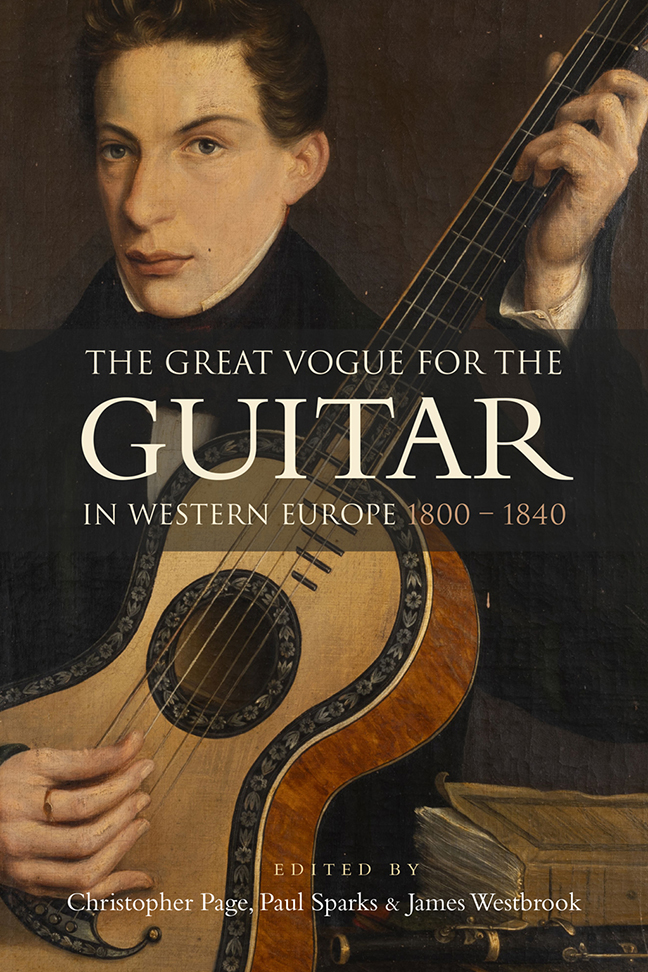Book contents
- Frontmatter
- Dedication
- Contents
- List of Illustrations
- Music examples
- The editors and the contributors
- Foreword
- Acknowledgements
- List of Abbreviations
- Introduction: The Great Vogue for the guitar
- I Contexts
- II The repertoire and its composers
- Appendix: A note on string-making
- Glossary of guitar terms
- Select Bibliography
- Index
13 - Fernando Sor (1778–1839)
Published online by Cambridge University Press: 10 January 2024
- Frontmatter
- Dedication
- Contents
- List of Illustrations
- Music examples
- The editors and the contributors
- Foreword
- Acknowledgements
- List of Abbreviations
- Introduction: The Great Vogue for the guitar
- I Contexts
- II The repertoire and its composers
- Appendix: A note on string-making
- Glossary of guitar terms
- Select Bibliography
- Index
Summary
Fernando Sor was, without doubt, one of the most significant guitar composers of the nineteenth century. He was also one of the few guitarists of his day to receive a formal musical training, notably in harmony and counterpoint, which enabled him to compose well-crafted music in different genres for a wide array of instruments. It is easy to forget that only about half of his known compositions are for the guitar.
Sor's life and movements
By birth, Sor was a Catalan bourgeois of Barcelona. The record of his baptism on 14 February 1778, written in the Catalan tongue, gives his full name as Joseph Fernando Macari Sors. His aptitude for music became apparent at an early age, when he learned to play the guitar, the violin and the piano. The guitar in question, at this early stage of his life, was probably the instrument of six double courses, which had been cultivated in Spain since at least the 1760s. The distribution of octave strings or unison pairs on the lower courses of such instruments varied: according to Antonio Abreu in 1799, there were as many opinions on that matter as there were players. It is uncertain how long Sor would have continued to use this type of guitar, if indeed he did; as in some other aspects of his playing, he was probably influenced by Federico Moretti, who wrote, in the same year of 1799, that he preferred single strings.
At the age of 12, Sor entered the choir school of the famous Benedictine monastery of Montserrat, some 45 kilometres north-west of Barcelona. This house was widely known for its lavish musical provision, and Sor was there introduced to sacred vocal music, as well as to orchestral works by symphonic masters such as Joseph Haydn. The principal teacher was Padre Anselm Viola (1738–1798), a respected composer, trained in the Italian style, which would also characterise Sor's music throughout much of his career. In addition to lessons in composition, the young boy received instruction on the organ and violin – Padre Viola apparently did not care much for the guitar, an instrument considered unsuitable for church music. This notwithstanding, Sor attempted to convey to the guitar the skills he had acquired in composition.
- Type
- Chapter
- Information
- The Great Vogue for the Guitar in Western Europe1800-1840, pp. 203 - 220Publisher: Boydell & BrewerPrint publication year: 2023



